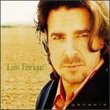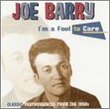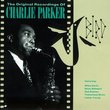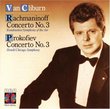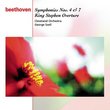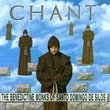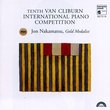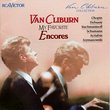| All Artists: Vladimir Horowitz, Camille Saint-Saens, Wolfgang Amadeus Mozart, Felix [1] Mendelssohn, Claude Debussy, Moritz Moszkowski, Frederic Chopin, Robert Schumann, Franz Liszt, Sergey Rachmaninov Title: Horowitz Encores Members Wishing: 0 Total Copies: 0 Label: RCA Release Date: 2/22/1990 Genres: Dance & Electronic, Special Interest, Classical Styles: Marches, Forms & Genres, Sonatas, Suites, Theatrical, Incidental & Program Music, Historical Periods, Classical (c.1770-1830), Modern, 20th, & 21st Century Number of Discs: 1 SwapaCD Credits: 1 UPC: 078635775525 |
Search - Vladimir Horowitz, Camille Saint-Saens, Wolfgang Amadeus Mozart :: Horowitz Encores
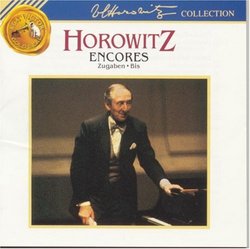 | Vladimir Horowitz, Camille Saint-Saens, Wolfgang Amadeus Mozart Horowitz Encores Genres: Dance & Electronic, Special Interest, Classical
Whether you love Vladimir Horowitz or not, you had to admit that in some showpieces he is incomparable. Here are lots of them: his own Variations on a Theme from Carmen, his souped-up versions of the Danse Macabre and Rako... more » |
Larger Image |
CD DetailsSynopsis
Amazon.com Whether you love Vladimir Horowitz or not, you had to admit that in some showpieces he is incomparable. Here are lots of them: his own Variations on a Theme from Carmen, his souped-up versions of the Danse Macabre and Rakoczy March, and Moszkowski's Sparks. Stars and Stripes Forever sounds as though the pianist had at least three hands--and good ones at that. I never cared for Horowitz's Chopin, and I'm afraid he beats the hell out of the Chopin Polonaise he plays here. But when you want to hear Horowitz the great showman, this is definitely the disc to play. --Leslie Gerber Similar CDs
Similarly Requested CDs
|
CD ReviewsThe Encore is more important than you might think! Craig Matteson | Ann Arbor, MI | 07/08/2002 (5 out of 5 stars) "These are famous Horowitz encores. They are not the titanic pieces he became famous or historically important for, but they are the pieces that made him popular with the public. Some are his own transcriptions, and every performance is his own.As one reviewer below said well, the encore was a special part of the recital that had its own demands and expectations. Having attended many recitals in my life I can tell you that it is a part of the recital art form that could use some revival. It isn't enough to simply flash and toss off little musical candies. That isn't what these are. Nor do you want to lay on something with too much weight that detracts from what you did during the main recital. However, you want to send the audience away happy, impressed, and with a sense of delight with the performer and their recital experience.Each of these pieces accomplished those goals. And Horowitz has a lot to teach all of us. Plus these are wonderful and spectacular performances. I am so glad to have them on disk." Irresistable Hank Drake | Cleveland, OH United States | 02/17/2006 (5 out of 5 stars) "Vladimir Horowitz was a master programmer, for the formal recital, and for an informal recital of encores after the printed program was finished. His first encore would invariably be a restful, contemplative piece, with contrasting fireworks to follow. Not every piece on this CD, recorded from 1942-1981, was used by Horowitz for encore material, and the emphasis here is on fireworks. The works on this CD can be divided into three categories: Horowitz's arrangements of orchestra pieces, double hyphenated elaborations by Horowitz of Liszt transcriptions, and "straight" piano music. Horowitz's Variations on a Theme from Bizet's Carmen followed him throughout most of his career. None of Horowitz's seven recordings (including two piano roles, three studio recordings [1928 this one from 1947, and 1957], and two televised performances) are quite the same, as Horowitz was constantly revising and refining this piece. As an expression of gratitude and pride at becoming an American citizen, Horowitz concocted an arrangement of Sousa's Stars and Stripes Forever--which he premiered in 1945 at I Am An American Day in New York's Central Park. By playing the piece at a true march tempo (rather than the scherzo-like tempo used in most orchestral performances) Horowitz is able to perform nearly very detail of Sousa's orchestration--including the piccolo flourishes at the climax. Both Saint-Saëns' Danse Macabre and the Mendelsson-Liszt Wedding March are enhancements of Liszt's arrangements which would have made even that 19th Century titan gasp. Likewise Horowitz's total reworking of Liszt's Rakóczy March (which really sounds more like an arrangement of Berlioz's orchestral version), which takes demonism to new levels. Yet there is an intimate side to Horowitz's playing which can be forgotten in the virtuosic sound & fury. The three Mendelssohn Songs Without Words are played with a lyrical simplicity. The inner voices of Schumann's Träumerai wake up and stretch while the piece dreams away. Horowitz's performance of Debussy's Serenade of the Doll makes one wish he had recorded the entire Children's Corner. He did record the complete Mozart Sonata in A, K. 331 years after the exerpt included here, and unlike the standard performance here, played the Rondo alla turca at a true march tempo. Horowitz's performances of Moszkowski are so well known that it's difficult to think of the composer without thinking of the pianist. Yet he only recorded three pieces, all included here. Over fifty years after their issue, they remain benchmarks among piano recordings. Not every performance on this CD shows Horowitz at his best. Chopin's A-flat Polonaise is effortlessly tossed-off, yet somehow misses the majesty Rubinstein brought to this piece. Both Mendelssohn's Scherzo a capriccio and Rachmaninoff's G minor Prelude have labored moments. Yet even off form Horowitz is better than many another pianist's best efforts. The sound varies on this CD, and most of it is in mono. Many of these pieces had been dropped from Horowitz's repertoire by the stereo era. But as examples of masterful exploitation of the piano's resources, exciting interpretation, and brilliant--even manic--performance, this compilation transcends any sonic limitations. " Rave Review! George Wm. Phillips | Utah | 03/19/2000 (5 out of 5 stars) "As a lifetime student and advanced coach of the piano I highly recommend this recording to all, who would like to here music of a bygone era. This album features encores of a pianistic style seldom heard in our day, recorded by the last of the truly great masters of the art of keyboard science. Though most are flashy in appearance (such as his 1940's recording of The Stars and Stripes Forever), some reveal an elegant simplicity (Schumann's Traumerei), and all display a technical mastery of the keyboard rarely achieved in the pianistic art. Trully all of these recordings reflect the art form of the encore, which was an intricate part of the 19th century concert stage. The Horowitz recordings contained on this CD are historic and will be a real treat for all who appreciate fine music."
|

 Track Listings (18) - Disc #1
Track Listings (18) - Disc #1